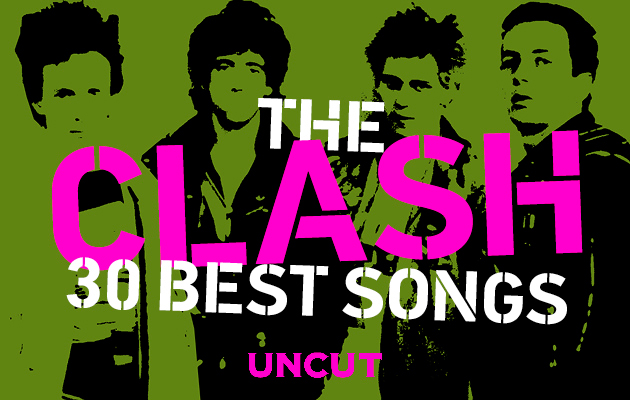2 Complete Control
Single A-side, September 1977
JONES: “Complete Control” was Bernie’s phrase. I think he enjoyed it, really.
SIMONON: Put it this way: a song was created out of his catchphrase.
JONES: So he was happy enough with that! But we were abused, we were being used.
SIMONON: We was on tour in Europe and “Remote Control” was put out behind our backs. We were angry, yeah, but “Complete Control” was funny as well. Like “Know Your Rights”, which was also supposed to be tongue in cheek.
JONES: It was very funny. Like we went to Amsterdam for the first time and it was like this circus around us, which was so amusing. We were just trying to make sense of it all. At that point it was the only non-reggae record Lee Perry had made. When me and Joe went to Jamaica we spent a whole day in this cab trying to find his Black Ark studio. We knew he had this picture of us and it was the only band that wasn’t a reggae band on his wall. But we got totally lost and never found it.
SIMONON: It’s a bit difficult for me to say about Lee Perry because by the time he was there I had really bad flu. I recorded my bass part, only saw him for half an hour then had to go and lie down. Missed the whole thing.
BOBBY GILLESPIE: I remember buying NME when The Clash were on the cover in April ’77 and shortly after that I bought their first album. I went to see them in October of the same year and they were breathtaking. “Complete Control” had just been released as a single and they played the most scorching version I’ve ever heard. Bob Dylan has that line about “the ghost of electricity”, and that’s exactly what it felt like that night. The whole set had this sensational impact that stayed with me for weeks. They came back to Scotland two months later and played an equally amazing set at the Glasgow Apollo with Richard Hell And The Voidoids.
PETE WYLIE: If I could go back in time and pick any song to see live in any setting, including Elvis’ first gig, The Beatles at The Cavern, Happy Mondays at The Hacienda… if I had to choose just one more song to see live I’d pick “Complete Control” by The Clash, anywhere, any venue. It’s the definitive Clash record. When they played Deeside on the On Parole tour, I had me plus-20 on the guest list. So that line “On the last tour, my mates couldn’t get in”, that was literally me! As a fan, when that song came out, life was better and it always is when I play it today. It’s a raw record and an absolutely combustible performance. It screams out at you. I was playing it last night, in me living room, shouting the song out, and halfway through I remembered that Joe was dead. All of a sudden it hit me. How can somebody who does this not be here, y’know? For me, “Complete Control” is just their finest hour.
STEVE DIGGLE: The production sound on “Complete Control” is completely all over the place, but it’s still one of the best fucking tracks I’ve ever heard. It’s got a killer chorus and the lyrics reinforce the fact The Clash weren’t prepared to take any prisoners. They might have signed to a major label but it was definitely on their terms: they knew you had to work hand in hand with the devil to get anywhere back then.
JAMES KIRK: A very memorable moment came during “Complete Control” at the Apollo in Glasgow when Suicide supported The Clash; a three-quarters-full can of Tennents, making a pretty arc of light before it landed on the head of a very cool Alan Vega.
RODDY FRAME: A great, great guitar riff. Really exciting. I always thought that the singles they brought out around then were much more juicy and exciting-sounding than the first album. The message of “Complete Control” was a bit confusing to me at the time, it was a bit beyond my grasp. I thought that if anyone seemed autonomous and able to determine their own future, to me and the other kids going to school every day, The Clash seemed those kind of people. So to hear them complaining about their record company, it took the edge off the glamour a little. But more than anything I just thought of it as a great rock’n’roll record with a great riff. I remember learning it, sitting with a little amp, trying to work it out. I think it’s the song where Mick Jones came into his own as a sort of Keith Richards of his generation.
JOHNNY GREEN: When roadies were setting up before the show, even those who weren’t too bothered about The Clash’s music, they’d all be singing that “Ooooh” chorus. It was like a gathering call.
MARK PERRY: I still see The Clash as the closest a band can be to the urban terrorist guitar slinger. Without a gun, but with a guitar. That’s the early Clash to me. I was the one who actually said that the day The Clash signed to CBS was the day punk died. It sounds dramatic, but at the time The Clash meant so much to us. More than the Pistols, they were OUR band, y’know. So I wondered how you could reconcile something like “1977” with being on one of the biggest record companies in the world? I thought “What’s all that about?” But looking back more realistically, they were a very ambitious group, they just wanted to be rock’n’roll stars like any band does. I was probably a bit too earnest to appreciate that. So when they did “Complete Control” I thought it was brilliant, for The Clash to actually be able to tell people that they’d signed to a label who’d released “Remote Control” as a single without their consent and make a song about that whole dilemma. That was one of the enduring qualities of The Clash, that if they’d made a mistake they’d be able to talk about it.
GARY CROWLEY: It’s a great song anyway, the tune, the production, it’s absolutely top drawer. But I love the lyrics, the honesty and realism of it, singing about all these things that were beyond their control. It just made you feel it was ‘us’, The Clash and the fans, against ‘them’, the record company.
DON LETTS: As Joe told me when I interviewed him for Westway To The World, Bernie Rhodes had come up to them after a meeting with Malcolm McLaren and said, “Look, we want complete control of the band.” They, of course, just cracked up laughing. So I think he translated that into not just Bernie but the record company in general wanting complete control, so it was their reaction to that. When they signed to CBS there was all this stuff about selling out – but the way I saw it, if The Clash hadn’t done what they did, punk rock wouldn’t even be a fucking movement. God bless the Pistols for starting it all off, but it was The Clash who really gave the thing its bollocks, its depth. They took it upon their shoulders to take it on to the next level because they didn’t want to be stuck with this fucking three-chord thing. That ended at the bottom of their street. They were ready to take on the world.
STEVE ERICKSON: There are so many great early songs, and at least four – “London’s Burning”, “What’s My Name”, “White Riot”, “Janie Jones” – I could have put on this list. But whereas they all seem like chapters of a novel, this is the one that sounds like its own little universe, from the great opening guitar to the finale that slams the song shut. In a way, it sums up The Clash better than any, and the paradox is that thematically it’s the most trivial, discarding the incendiary social commentary for a careerist complaint. Except, of course, it’s not just a careerist complaint, but the best evidence of how, if the personal isn’t always political, the political is always personal. Not to mention that, as with most great bands, here their identity exists as much in the calamitous racket they made as in the words they sang.
GIDEON COE: For those interested in pointless arguments about the relative merits of records, this is the Great Punk Rock Single. It also gives a lie to that hoary old utterance on the part of ’76 stalwarts that “punk rock died the day The Clash signed to CBS”. Without them putting pen to paper with the big boys and then getting pissed-off over the proposed release of “Remote Control”, they might never have delivered this. How would we have survived without hearing that intro, Jones’ guitar solos and Strummer barking out “This is Joe Public… SPEAKING!” As a measure of just how magnificent this record is, I find it very hard to write about it without immediately wanting to hear it. Again and again.
LYNDON MORGANS: I’d say this track vies with “God Save The Queen” or “Anarchy In The UK” as the supreme expression of what that particular moment in British music was all about. It’s a squall of manic energy, a cocksure roar of satisfaction from a band who just knew they were in perfect sync with their times. And their place. And it’s funny too – Joe’s “You’re my guitar hero!” a few bars into Mick’s solo. And the drop-outs near the end are brilliantly done.
ADAM SWEETING: Rousing cri-de-coeur of rebel rock combo trying to square their political stance with falling into the clutches of CBS Records – something they never quite achieved to their satisfaction. Probably because it wasn’t possible. “They said we’d be artistically free/When we signed that bit of paper,” wailed our stitched-up heroes, but the tension and frustration fired them up to produce this spitting, splenetic chunk of aggro-punk.
STEVE WYNN: This just shouldn’t have worked. I mean, what could possibly be more annoying, self-indulgent and whiny than a band bitching about a disagreement with their label over which songs would and wouldn’t be released. But somehow it all turns into a springboard for a manifesto about integrity, selling out, defiance and a shifting scale of values and expectations. And it’s delivered with humour, terror and fearless conviction – not an easy balance to pull off. And when Strummer brings it down and grumbles, “I don’t trust you, why should you trust me?” I get chills every time. In that one moment, The Clash went from being one of the better punk rock bands to being, well, the only band that mattered.
MICKEY BRADLEY: Self-mythologising again, but when your story’s as good as The Clash, it can’t be helped. The music press adverts showed a youth in Derry watching a burning building while sitting on a fire extinguisher. We didn’t mind.
MATT FRIEDBERGER: A great rock song with great vocals and a flawless switch in the middle. “I don’t trust you, why should you trust me?” That should be the starting point of your relationship with all of your records. Or anything else you might buy, I suppose.
ALAN PARKER: The first Clash single I ever bought on release day, and an anthem that got played till it wouldn’t play no more.



